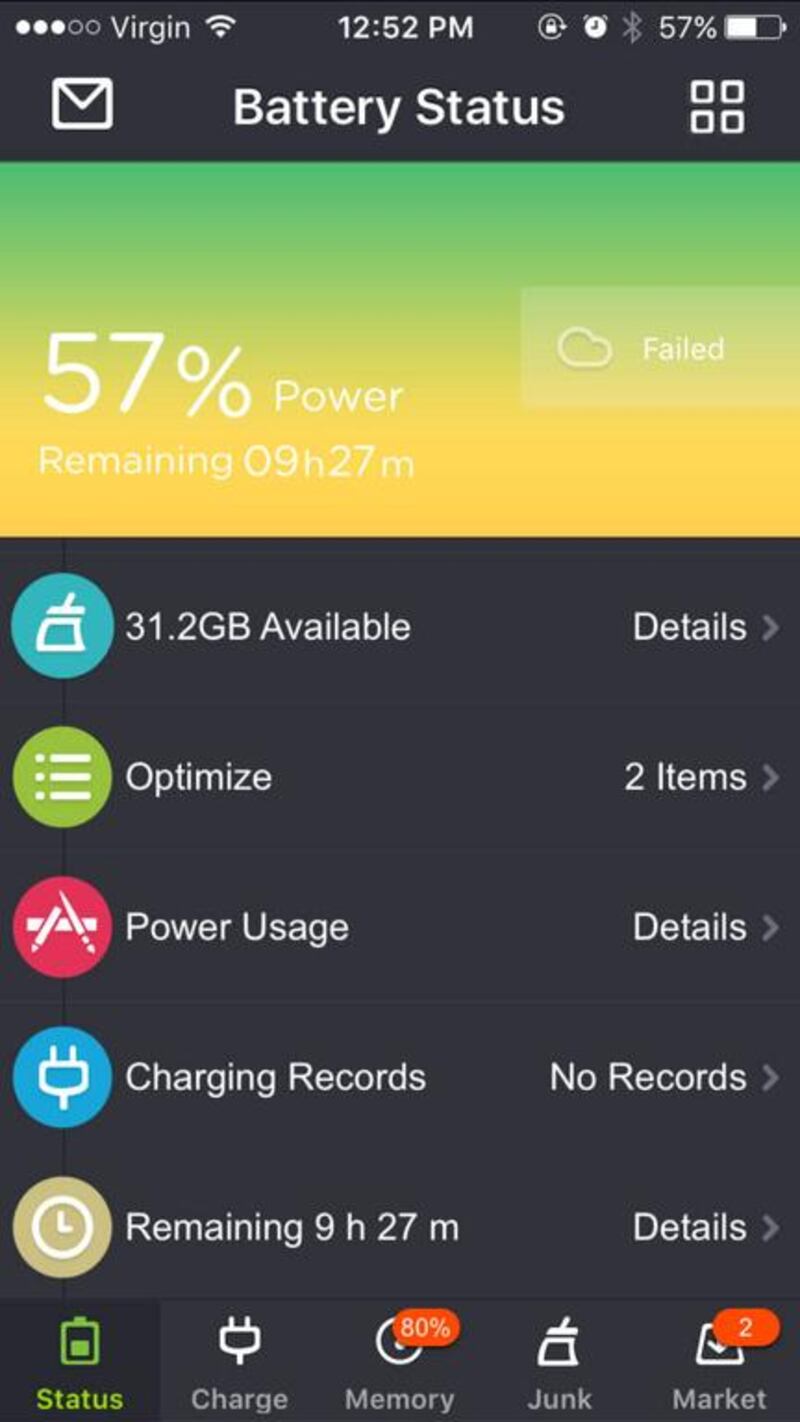Battery Doctor says it does three things: helps to charge your battery, boost memory and clear out junk.
Fans believe Battery Doctor can “pep up” their phone’s system to make it run faster. But critics say such apps drain the battery. So the jury seems to be out on whether battery saver apps do much more than kill tasks that you will inevitably restart.
I have had the app on my phone for years. However, doing some due diligence has led me to delete the app, deciding to do things manually from now.
Running a test and deleting my Battery Doctor app before reinstalling, I found there were two almost identical apps in the iTunes store, both by Kingsoft and claiming 50 million users.
One told me I was at 77 per cent memory; that became 38 per cent after a boost. When I force-closed it and immediately opened the other Battery Doctor app, the second told me my memory was actually 80 per cent full – 37 per cent after a boost. Force-closing that one and returning to the original app, the same thing: 82 per cent to 31 per cent. All within a couple of minutes.
The same thing happened when I ran Junk to clean up my cache. Eventually a pop-up told me that junk cleaning would remove some temporary files from applications, possibly including game progress and cache data, and a recommendation to use the feature “only when disk space is seriously low”. I decided I didn’t want to risk any further clear-outs. Could you imagine losing your high Candy Crush score?
Where an app like this can be useful is to give you a quick snapshot of how much memory and storage space you’re using, which apps are the biggest guzzlers and how many hours or minutes you have left if using internet on Wi-Fi or 3G, talk time, video playback, games, GPS navigation etc. But for that one task, I’d rather use settings and some guesswork.
q&a power to the last charge
Suzanne Locke offers more insight into your phone’s battery life:
How long will my smartphone battery last?
Smartphones use a lithium-ion battery or lithium-ion polymer, which do not have a memory and do not need full charging and discharging. They use fast charging to quickly reach 80 per cent capacity, then go to trickle charging to extend the battery lifespan – this is called a charge cycle. Apple says its iPhones will lose 20 per cent of their capacity after 500 complete charge cycles. But if you only use 75 per cent of your battery capacity before "topping up" and 25 per cent the next day, that equals one charge cycle. So your battery should last a fair time.
Are better batteries on the way?
In future, phones could run for days on a single charge – the University of Cambridge has developed a lithium-oxygen battery that offers 10 times the power of a lithium-ion cell and can be charged 2,000 times.
How can I save battery?
Most people know to reduce screen brightness and timeout and turn off GPS, Bluetooth, location services, Wi-Fi and mobile data when they are not needed. But there are other things too – keep your apps updated to the latest version, as updates often optimise battery or data, turn off automatic time zones and only enable push for the most important of email accounts. Carry cases and covers can generate excess heat too, so strip your phone bare and let it breathe occasionally. If you’re running really low on battery, both Android and iPhone now have forms of low power, or doze, mode.
business@thenational.ae
Follow The National's Business section on Twitter





